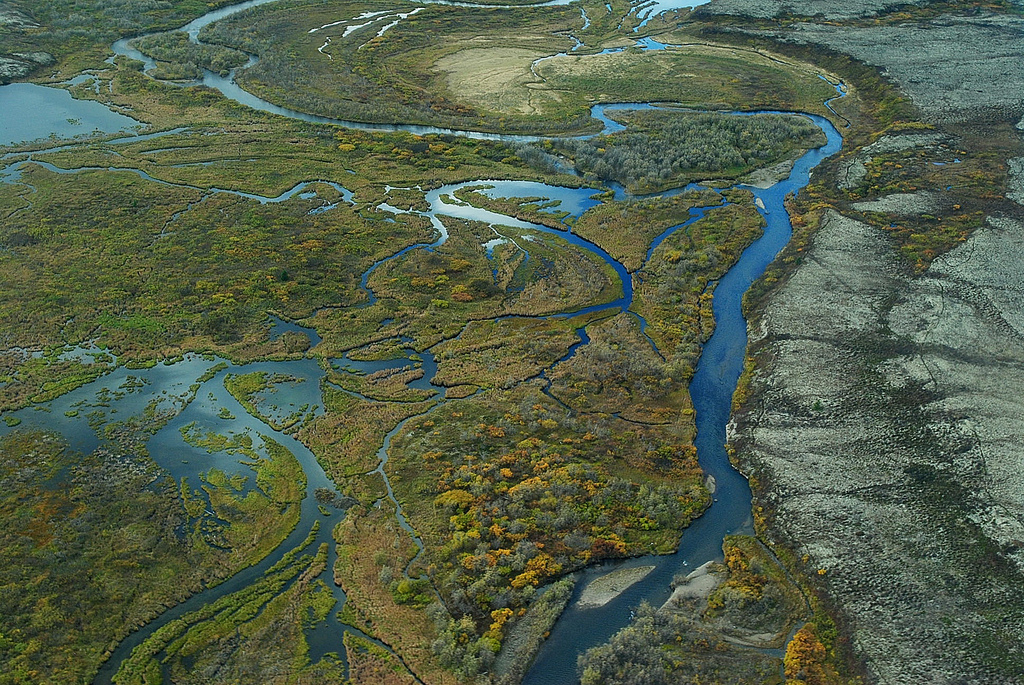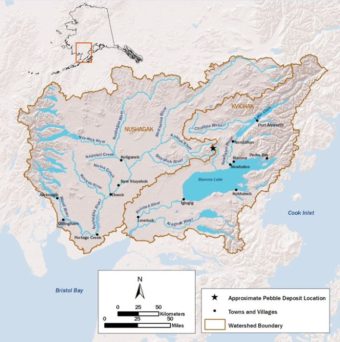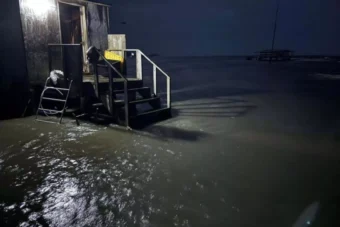
The United Tribes of Bristol Bay, Bristol Bay Native Association and Bristol Bay Economic Development Corporation published “The Call” in December after the Army Corps of Engineers denied Northern Dynasty’s permit application for the proposed Pebble Mine. UTBB is a tribal consortium that represents 15 tribes in the region. The Bristol Bay Native Association and the Bristol Bay Economic Development Corporation support UTBB’s proposal.
At a virtual town hall earlier this month, UTBB presented a road map for the two-part plan.
“Tribes in the region and Bristol Bay leadership have come together once again, to revive their previous request for 404c action, and we put a proposal forward for both administrative and legislative action to permanently protect Bristol Bay,” said UTBB Deputy Director Lindsay Layland said.
The 404c section of the Clean Water Act restricts discharged dredged waste in defined waters or wetlands. Tribes in the region called for that veto over 10 years ago, when Pebble was first proposed.

In 2014, the Environmental Protection Agency proposed a “preemptive veto” of a larger mine in the area under Section 404c based on the agency’s Bristol Bay Watershed Assessment. But it was never finalized, and the Trump Administration withdrew the proposal.
Renewing the veto process could prevent Pebble and future companies from dredging at Bristol Bay’s headwaters. The Native American Rights Fund supports the region’s call.
Attorney Matt Newman said the second step of the plan — could solidify permanent federal protections for the watershed.
“Proposing and seeking out legislation that will offer similar kinds of protections from hard rock mining, through the creation of a National Fisheries Area,” he said.
A national fisheries area in the region would be the first of its kind. Through this designation, the groups supporting the plan want to ban any large-scale mines from waste disposal in Bristol Bay’s waters.
A focus on water protections would bypass the need for a state designation. Newman is looking to federal water protections for fish habitat in other parts of the country for guidance.
“It’s something that is uniquely suited for a unique problem — mining in Bristol Bay,” he said. “By threading this needle carefully, we can achieve the protection of Bristol Bay and fisheries resources, but without land statuses like a park or reserve, which locals do not want to see.”
If the land is declared a park or conservation system, it could bar fishing in the protected area. The potential for federal protections in the region could happen under the Biden Administration.
The administration proposed a plan at the end of January to conserve 30% of land and water in the U.S by 2030, known as the “30×30 Executive Order.” The Department of Interior named tribes and fishers as some of the key stakeholders.
Tyson Fick is a commercial fisher who works for Salmon State, a conservation group based in Juneau. Fick is cautiously optimistic about the possibility of permanent protections.
“There’s a lot of reason to be skeptical,” he said. “What the federal and state governments are actually going to follow through on. This is just the beginning and time will tell. It is becoming rapidly apparent that we don’t have a lot of time. It is great to see that we’re going to take bold steps head-on rather than hiding it from it.”
There is currently no timetable for when legislation could be presented, or what the “30×30 Executive Order” will look like.
Other groups support resource and job development in the region. Iliamna Natives Limited sees projects like the Pebble Mine as an opportunity for their village to grow economically.
Northern Dynasty, Pebble’s parent company, also submitted an appeal at the end of January to the Army Corps challenging the permit denial.


